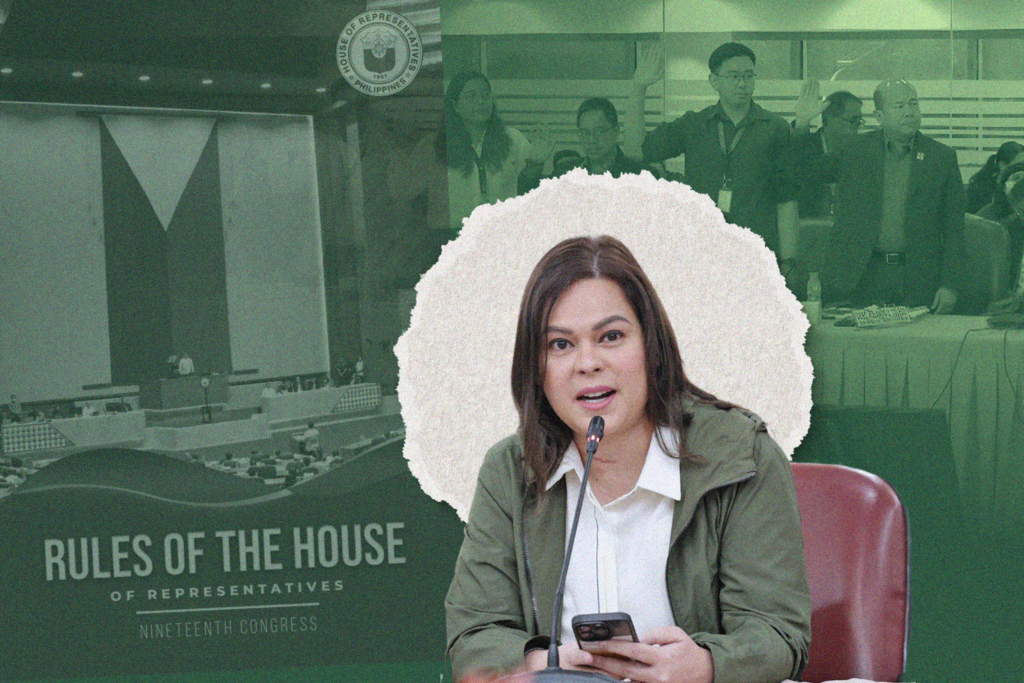VP’s refusal to take oath: PhilSTAR Life explains implications of her action

CHEERS TO PhilSTAR Life, a digital vertical of The Philippine Star, for seeking legal insights and reviewing norms of procedure when Vice President Sara Duterte defied congressional rules by refusing to take an oath.
The Committee on Good Government hearing at the House of Representatives on September 18 presented a critical moment for accountability, as lawmakers sought to investigate allegations on the Office of the Vice President’s misuse of funds.
The proceedings took a turn when Duterte declined to take the oath, arguing that she was invited as a “resource person” and that House rules only require “witnesses” to be sworn in. Manila Representative Joel Chua, the committee chair, countered that everyone is considered both a resource person and a witness. Former president and Pampanga Representative Gloria Macapagal Arroyo defended Duterte, arguing that resource persons and witnesses have different tiers of protection.
Unlike Duterte, resource persons from the Commission on Audit and the Department of Budget and Management observed the standard practice and proceeded to take the oath.
Contrasts in coverage
The media generally reported on Duterte’s arguments against oath-taking, her privilege speech and lawmakers’ responses (TV Patrol, 24 Oras, Frontline Pilipinas, and Rappler).
It was PhilSTAR Life that that took the initiative to present the implications of the vice president’s actions. The approach provided clarity, insight and context beyond the verbal sparring that transpired at the hearing.
Writer Nick Garcia consulted lawyers about the practice of oath-taking in House hearings. Lawyer Jefferson Legado noted that “resource person” is not defined in House or Senate rules, which only use the term “witness.” The Supreme Court uses the terms interchangeably in its decisions, Legado said.
Taking an oath is an ethical commitment. As lawyer Hyacinth Merioles explained, the act serves to vouch for integrity and truthfulness, and that the technical term for guests, whether they are witness or resource persons, is “no big deal.” She suggested that Duterte’s refusal might be a tactic to avoid committing perjury, or lying under oath.
The Philippine Daily Inquirer briefly cited a criticism of Duterte’s snub of House practices, quoting Antipolo Representative Reynaldo Acop who noted that Duterte could damage the integrity of the public office by refusing to take the oath.
Garcia and Manila Bulletin recalled instances when even former presidents Fidel V. Ramos and Benigno “Noynoy” Aquino III took their oaths during congressional inquiries in 2006 and 2017, respectively.
Norms, not whims
To let Duterte’s refusal to take an oath without seeking informed views about it risks presenting the conduct as a norm. It suggests that public officials can disregard established practices in public hearings designed to seek accountability. This sidelines the media’s role to promote good public judgment on public officials and on democratic norms and rules, which set a culture of mutual respect and restraint in political exchanges.
Norms prevent the abuse of power so that deviations from them have to be critically and diligently reported. Failing to do so not only condones the spoiled conduct of politicians like Sara Duterte. It contributes to distrust in processes and institutions that make up a democracy.
As political scholars argue, many modern democratic breakdowns occur through legalistic means, as leaders try to erode norms while staying within the letter of the law.
Leave a Reply